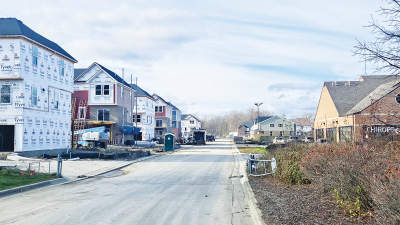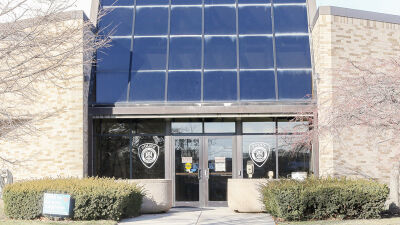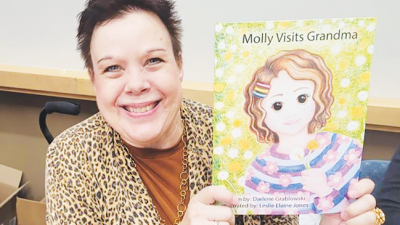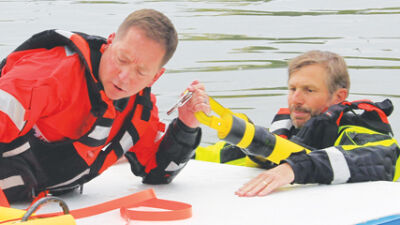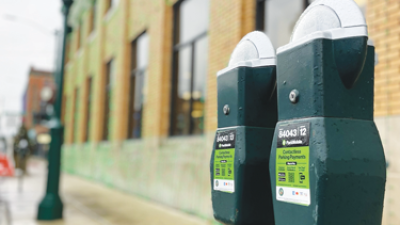HAZEL PARK — A federal grant will provide the Hazel Park Community Coalition $625,000 during the next five years, with eligibility to seek another five years of funding totaling $1.25 million over 10 years, as the coalition works to reduce substance use among youth.
The grant comes by way of the Drug-Free Communities Support Program, which is administered through the Centers for Disease Control and Prevention. The HPCC will receive $125,000 each year for the next five years. It can then apply for the second round of funding.
“(The HPCC) is an organization that’s been involved in the city for quite awhile. We’re always supportive of different groups who want to address societal ills,” said Andy LeCureaux, a member of the Hazel Park City Council. “Drug addiction isn’t something that one intends to do. It’s something that happens maybe with poor judgment, and the next thing you know, you’re into something that you can’t control. So programs like these work to hopefully prevent those situations, but also to provide some tools and guidance if one finds themselves in that situation.”
To qualify for the grant, the HPCC studied use of tobacco, nicotine and marijuana products among youth in Hazel Park and presented its findings to the CDC. The group surveyed students in grades 6-12, studying perceptions of harm, parental disapproval and friend disapproval. The HPCC found that students generally don’t understand the health impacts of substances such as tobacco, nicotine and marijuana.
The HPCC also presented an action plan that will use the grant money to share evidence-based findings with the community, educate the public about drug use, provide social support, enhance access to resources, reduce youth access to drugs, and work with lawmakers to promote drug-free lifestyles.
“We are thrilled that the Hazel Park Community Coalition has secured the DFC grant. This will allow the coalition to take meaningful steps to educate our students, families and community to lead chemical-free lives,” said Stephanie Dulmage, HPCC vice president, via email.
The HPCC is a licensed 501(c)(3) nonprofit organization closely aligned with the Hazel Park Public Schools. Formed in the fall of 2016, it was established after a 24-year-old resident relapsed and died from a heroin overdose. A neighbor contacted then-Congressman Sander Levin, who connected them to the Alliance of Coalitions for Health Coalitions. The resulting partnership led to the formation of the HPCC.
The group consists of a board and one part-time employee. With the DFC grant, the HPCC will also be able to hire a full-time executive director. The position is currently not filled. The board itself represents a cross section of the community, including students, law enforcement, local businesses, a health care professional and more.
“The HPCC is laser-focused on addressing the biggest issue facing the youth in Hazel Park and the school district,” said Benjamin Ervin, president of the HPCC, in an email. “Tobacco, nicotine and marijuana are the most significant current substance use problems among youth in Hazel Park and the school district. For a positive outcome in protecting Hazel Park youth, we know that parents, caregivers, teachers and community members must be armed with information, tools and HPCC’s support, and youth need to feel they belong to a strong social network that nurtures their mental and physical health.”
Past initiatives by the HPCC include disseminating data in schools and the community about substance use and abuse among youth in grades 6-12; participation in the Empowering Solutions for Positive Futures summer program; youth attendance at the Community Anti-Drug Coalitions of America conference; yearly training for the use of naloxone, which can reverse an overdose; community-based social events for youth; and general involvement in the schools providing resources and materials, as well as “damage demonstrations” warning about the dangers of smoking.
LeCureaux said the issue of substance use and abuse is universal.
“Drug addiction happens, and it crosses all socioeconomic boundaries,” he said. “When you stigmatize seeking help and assistance, people don’t know what to do. In wealthier communities, families may seek private care, but in communities that are not as wealthy, grants like this are extremely important and can make a huge difference in people’s lives.”
 Publication select ▼
Publication select ▼



